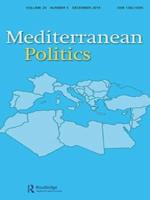How has sectarianism been used to mobilize for war in Syria?
The rise of sectarianism in the Middle East has predominantly been explained by realist or soft constructivist approaches. This article offers an alternative poststructuralist reading of sectarian identity politics.It proposes analysing sectarianism as a specific, yet ambiguous ethno-religious discourse in which the ‘sectarian taboo’ continues to restrain aggressive forms of sectarian enunciations.
Drawing on rare first-hand material and interviews, it is shown how sectarian referents both are securitized, deferred and invoked in Hezbollah’s political discourse legitimizing its warfare in Syria. However, it also suggests that we need to look beyond official discourses, and into the world of popular culture, where religious mythology, imagery and music diffuse the boundary between the real and the simulated. In the end, sectarianism may reveal a common post-modern condition of longing for authenticity and solid ground.
DIIS Experts



